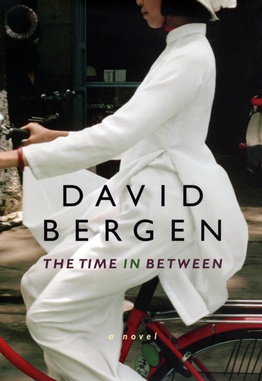
The Time in Between is a novel by Canadian author David Bergen. It deals with a man, who mysteriously returns to Vietnam, where he had been a soldier earlier in his life, followed by his children, who also go to Vietnam to search for him. The novel was the recipient of the Scotiabank Giller Prize and the McNally Robinson Book of the Year Award in 2005.

Thomas Michael Keneally, AO is an Australian novelist, playwright, essayist, and actor. He is best known for his non-fiction novel Schindler's Ark, the story of Oskar Schindler's rescue of Jews during the Holocaust, which won the Booker Prize in 1982. The book would later be adapted into Steven Spielberg's 1993 film Schindler's List, which won seven Academy Awards, including Best Picture.

"Bluebeard" is a French folktale, the most famous surviving version of which was written by Charles Perrault and first published by Barbin in Paris in 1697 in Histoires ou contes du temps passé. The tale tells the story of a wealthy man in the habit of murdering his wives and the attempts of the present one to avoid the fate of her predecessors. "The White Dove", "The Robber Bridegroom" and "Fitcher's Bird" are tales similar to "Bluebeard". The notoriety of the tale is such that Merriam-Webster gives the word "Bluebeard" the definition of "a man who marries and kills one wife after another". The verb "bluebearding" has even appeared as a way to describe the crime of either killing a series of women, or seducing and abandoning a series of women.
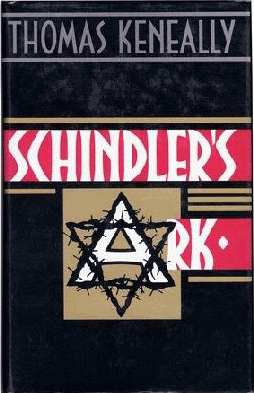
Schindler's Ark is a historical fiction published in 1982 by the Australian novelist Thomas Keneally. The United States edition of the book was titled Schindler's List; it was later reissued in Commonwealth countries under that name as well. The novel won the Booker Prize and was awarded the Los Angeles Times Book Prize for Fiction in 1983.

Rosie Scott was a novelist, poet, playwright, short-story writer, non-fiction writer, editor and lecturer, with dual Australian and New Zealand citizenship.
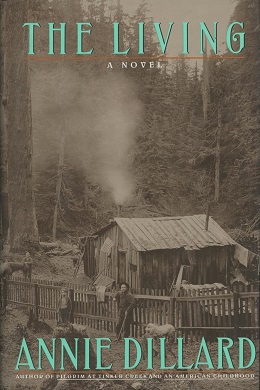
The Living is American author Annie Dillard's debut novel, a historical fiction account of European settlers and a group of Lummi natives in late 19th century Washington. The main action of the book takes place in the Puget Sound settlements of Whatcom, Old Bellingham, Sehome, and Fairhaven, which would later merge to form the city of Bellingham, Washington.
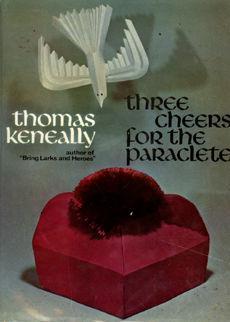
Three Cheers for the Paraclete (1968) is a novel by the Australian author Thomas Keneally. It won the Miles Franklin Award in 1968.
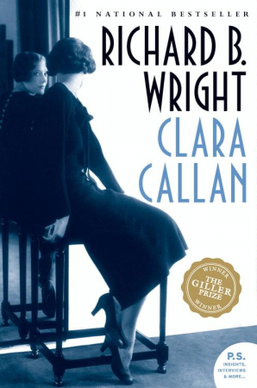
Clara Callan is a novel by Canadian writer Richard B. Wright, published in 2001. It is the story of a woman in her thirties living in Ontario during the 1930s and is written in epistolary form, utilizing letters and journal entries to tell the story. The protagonist, Clara, faces the struggles of being a single woman in a rural community in the early 20th century. The novel won the Governor General's Award in English fiction category, the Scotiabank Giller Prize, and the Trillium Book Award.
The Colin Roderick Award is presented annually by the Foundation for Australian Literary Studies at Queensland's James Cook University for "the best book published in Australia which deals with any aspect of Australian life". It was first presented in 1967 and has a prize of A$20,000. Starting in 1980, the H. T. Priestley Memorial Medal has also been bestowed upon the award winner.

The Polished Hoe is a novel by Barbadian writer Austin Clarke, published by Thomas Allen Publishers in 2002. It was the winner of the 2002 Scotiabank Giller Prize and the 2003 Commonwealth Writers' Prize for Canada and the Caribbean region and 2003 Trillium Book Award.

Thunder in the East is a 1952 American war film released by Paramount Pictures, and directed by Charles Vidor. It was based on the 1948 novel The Rage of the Vulture by Alan Moorehead; the book title was the working title of the film.

Veronica Brady IBVM was an Australian religious sister who was a noted writer and academic. She was one of the first Australian religious sisters to broadcast on radio and to teach at a secular university. She was a member of the inaugural board of the Australian Broadcasting Corporation in the 1980s.
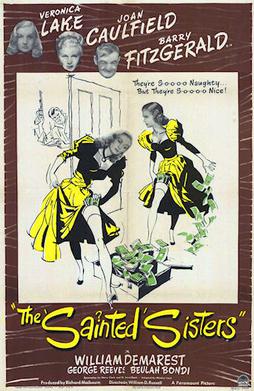
The Sainted Sisters is a 1948 American comedy film starring Veronica Lake and co-starring Joan Caulfield, Barry Fitzgerald, George Reeves, William Demarest and Beulah Bondi. The film was distributed by Paramount Pictures and is notable for being the last film Veronica Lake made under her contract with the studio.
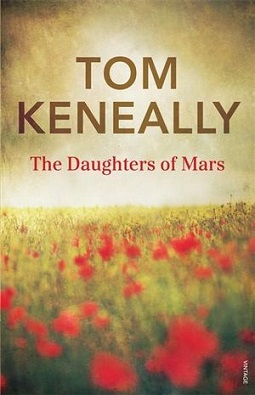
The Daughters of Mars is a 2012 novel by Australian novelist Tom Keneally.
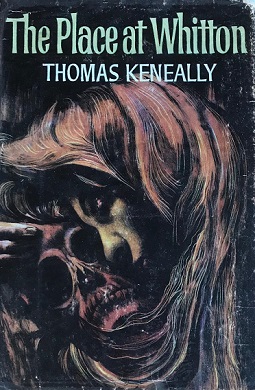
The Place at Whitton (1964) is the first novel by Australian writer Thomas Keneally.
This article presents a list of the historical events and publications of Australian literature during 1974.

Moses the Lawgiver (1975) is a novel by Australian writer Thomas Keneally. The novel is based on the British television series "Moses the Lawgiver", for which Anthony Burgess wrote the script.
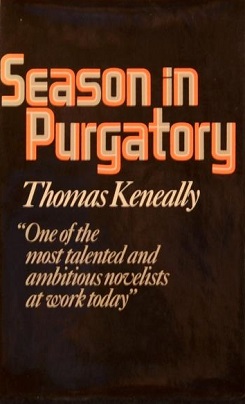
Season in Purgatory (1976) is a novel by Australian author Thomas Keneally.
Peggy Louise Goodin was a best-selling American novelist and three-time Hopwood Award winner. Two of her novels were adapted into films.
Michelle Good is a Cree writer, poet, and lawyer from Canada, most noted for her debut novel Five Little Indians. She is a member of the Red Pheasant Cree Nation in Saskatchewan. Good has an MFA and a law degree from the University of British Columbia and, as a lawyer, advocated for residential-school survivors.
















